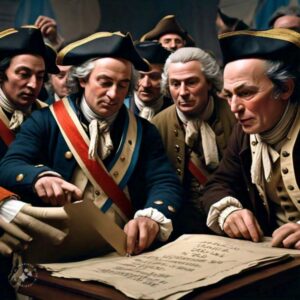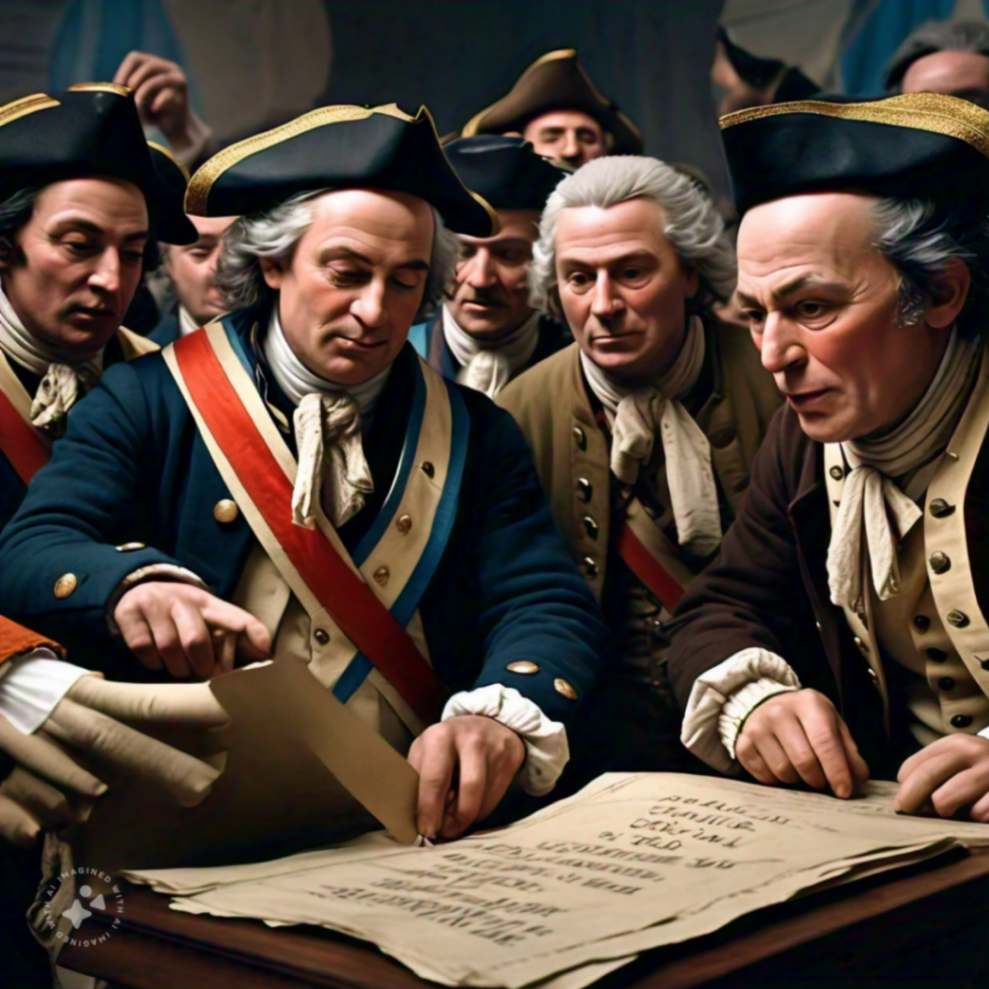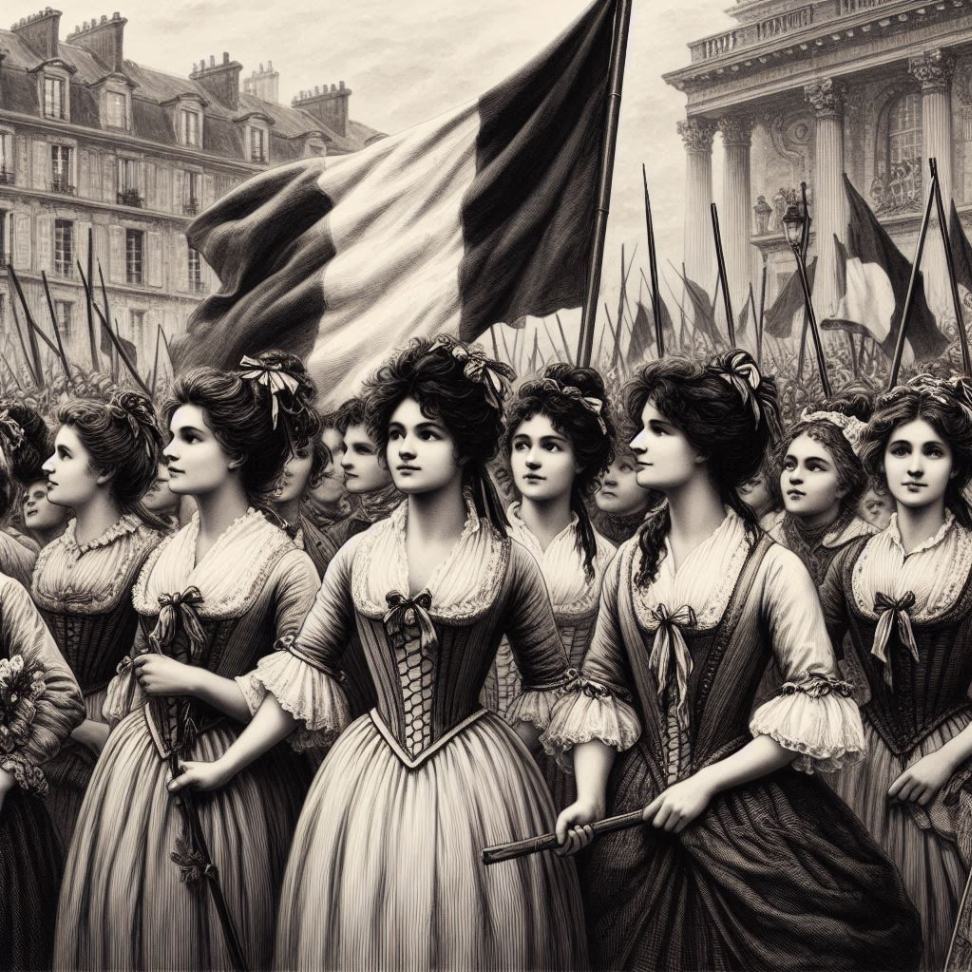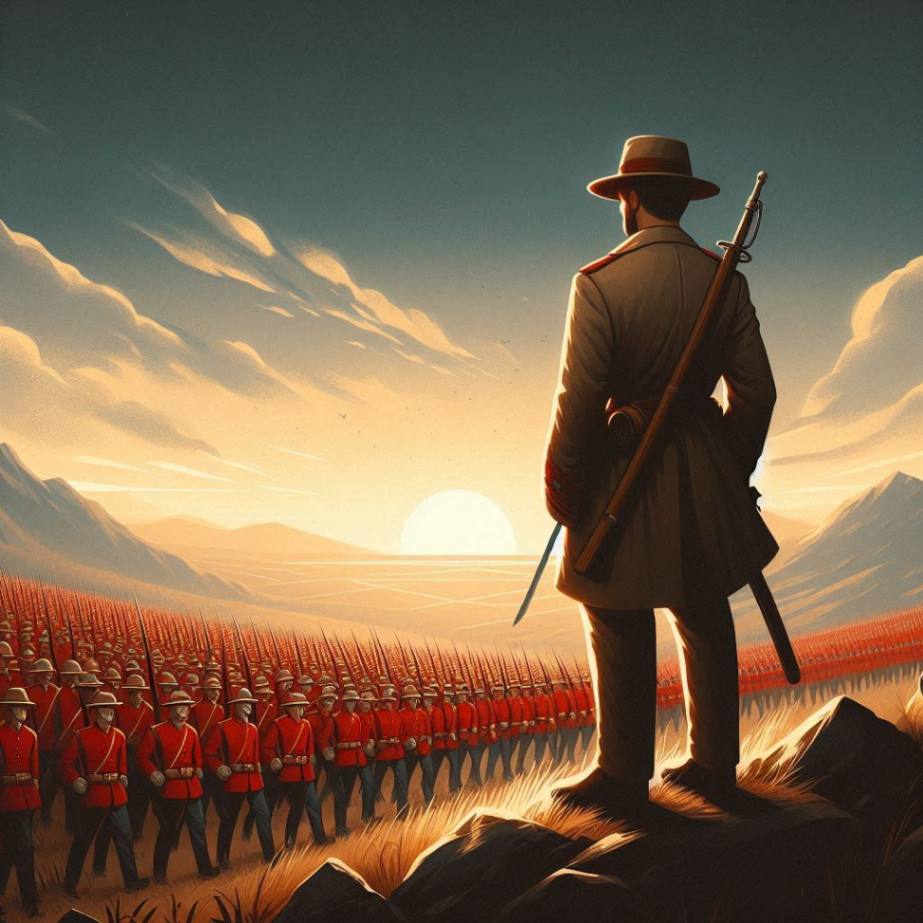Chapter-1 Part-6
What have we learned so far?
In Part 5 of Chapter 1, we studied about the outbreak of the French Revolution. In Part 6, We will study the Declaration of Rights of Man and Citizen which defines rights, important rules, freedoms, and responsibilities.
New Vocabularies
- Article: It’s like a single chapter of a book. This word is specifically used inside a book of the Constitution to talk about specific ideas, rules, or rights.
- Inalienable– essential
- Destitute – Refers to people who are poor and lack food and shelter.
Understanding the Constitution of 1791
- In 1791, a group of people called the National Assembly created a document known as the Constitution.
- This constitution aimed to reduce the power of the king.
Division of Powers
- Instead of the king having all the power, now three groups shared the power as follow:
- The Legislature: makes the laws
- The Executive: enforces the laws
- The Judiciary: judges the laws
- By dividing the power among different groups, the king’s power was reduced.
- The constitution limited the king’s power and therefore people called France a constitutional monarchy.
The Role of Electors and the National Assembly
- Citizens will choose a small group of people called Electors.
- Electors will choose the members of the National Assembly.
- The National Assembly will then make laws.
- The National Assembly consisted of 745 members.
- Active Citizens can only vote to elect electors.
- Passive citizens are people who cannot vote. It includes all other people(people of all genders) who are not active citizens.
- Men who are over 25 years old and have paid taxes which are equal to 3 days of their salary are called Active citizens.
- Among 28 million people, 4 million people are active citizens and are eligible to vote.
- On the other hand, 3 million men, along with all women, children, and young people under 25 years old were passive citizens.
- Men who are over 25 years old and have paid taxes which are equal to 3 days of their salary are called Active citizens.
- Moreover, someone who wants to become an elector or member of the National Assembly has to pay a lot of tax.
- Importantly, Decisions made by the National Assembly can be rejected by the king. He has the power to reject their decisions.
- Thus, The National Assembly controls the King by creating laws and making decisions for the country.
- Citizens choose judges by voting and the judges have to make sure laws are obeyed properly.
How the Declaration of Rights of the Man and the Citizen define rights for everyone
- French Declaration of the Rights of Man and Citizen is the special part with which the Constitution starts.
- This declaration stated that everyone has certain rights because they are human.
- These rights include
- Everyone is allowed to live and enjoy their life. This is known as the right to life (live).
- The freedom of speech (which means the freedom to say what you think)
- The freedom of opinion
- Moreover, Every Individual should be equally treated under the law.
- We are born with certain rights which cannot be taken away from us and such rights are known as Natural and inalienable Rights.
- It is the job of the government to ensure everyone listens to these rights so that they can enjoy their rights equally.
- The government must make sure no one takes away these rights from anyone. It must protect these rights and define rights so that everyone can be safe and treated fairly.

Articles present under the Declaration of Rights of Man and Citizen
- Each rule under the Constitution is called an Article. The French Declaration of Rights of Man and Citizen consists of 10 articles.
1st Article
- All the Individuals are born free.
- Everyone must be treated equally.
- Government service can be accessed by all citizens equally under the Law.
- Equal opportunities must be provided to all citizens to succeed in their lives.
- Additionally, Every citizen has the same rights and freedom under the law.
2nd Article
- The main job of any government is to protect people’s natural rights, which are freedom, owning property, and feeling safe.
- Also, you have the freedom and protect yourself against any form of mistreatment or oppression that might come from powerful individuals or groups.
3rd Article
- All the power to elect electors in the country comes from the people.
- No group or person can have power unless the people give it to them.
4th Article
- You have the right to do whatever you want and can make choices as long as it does not harm others, or disrespect their rights and people’s happiness and safety. This is the definition of individual freedom.
5th Article
- Laws and Rules are created to make sure everyone can live together peacefully and safely. A Set of Rules and Laws are called policies.
- By following the rules, people don’t do things that hurt others.
6th Article
- Laws should be made based on the choices majority of people.
- Citizens can decide how a Law should be either voting for themselves or choosing a representative to vote for them.
- Everyone must follow certain rules called laws. These laws are accepted by the majority of people because these laws or rules encourage equality and so everyone should follow them.
- Voting allows everyone to take part in Law Making, and selecting Leaders and sharing their opinions on which rules are beneficial for all and how these rules will affect their lives.
7th Article
- Rules for blaming someone for doing wrong, arresting them, and keeping them in prison are decided by Laws written under the Constitution.
- Therefore, unless the laws of the constitution say it’s okay, nobody can be blamed or put in jail.
11th Article
- Everyone has a right to share ideas and thoughts, speak, write, and publish freely.
- It is important to remember that these freedoms must be used carefully. The people who misuse these freedoms will harm others, and so they have to face serious consequences for breaking the rules.
12th Article
- The government needs money from people in the form of taxes to keep important services like the police and public administration running.
- How much you pay depends on how much money you earn
- People all over the country have to pay money in the form of tax to the government.
- Public services such as maintaining safety through police officers and developing necessary infrastructure like schools and roads are provided by the government through taxes paid by its citizens.
- A higher amount of tax is collected from Wealthy people compared to People with Low Income. By this, Equality is maintained in society. By this method, every individual can pay tax based on what they can afford.
17th Article
- Every individual has the right to own land or property.
- The government can only take away someone’s property to benefit the community or society by building a road.
- The government should pay the owner a good amount of money before taking away someone’s land or property. This method makes sure the individual is treated equally and money given to him by the government helps him to find a new home or job.
Remember
- Article 1 and 6 are similar because they both want every individual to be free and treated equally.
Jean-Paul Marat: Criticism of the National Assembly
- He published a newspaper “The Friend of the People.”
- In this newspaper, he criticized the Constitution made by the National Assembly.
- According to him
- Educated and wealthy people from the Third Estate in France formed the National Assembly, drafted a constitution, and made decisions and laws.
- Moreover, they created lenient laws with little emphasis on strict punishments and forceful actions
- These laws primarily aimed to benefit the wealthy and make their lives easier.
- Due to their lack of strictness, these laws did not provide much assistance to the destitute and oppressed or solve their problems.
- The Constitution drafted by them did not guarantee equality for everyone; instead, it was designed to benefit the rich, neglecting the destitute.
- Laws are effective only when they are universally respected and obeyed. If people don’t agree or refuse to obey, then the laws don’t have much power.
- He believed that powerful and wealthy people must be removed from the National Assembly by the destitute members of the Third Estate.
- Because the wealthy might not always make fair decisions that benefit everyone in society, leading to a loss of trust in the rich by the destitute people of the third estate in the future.




